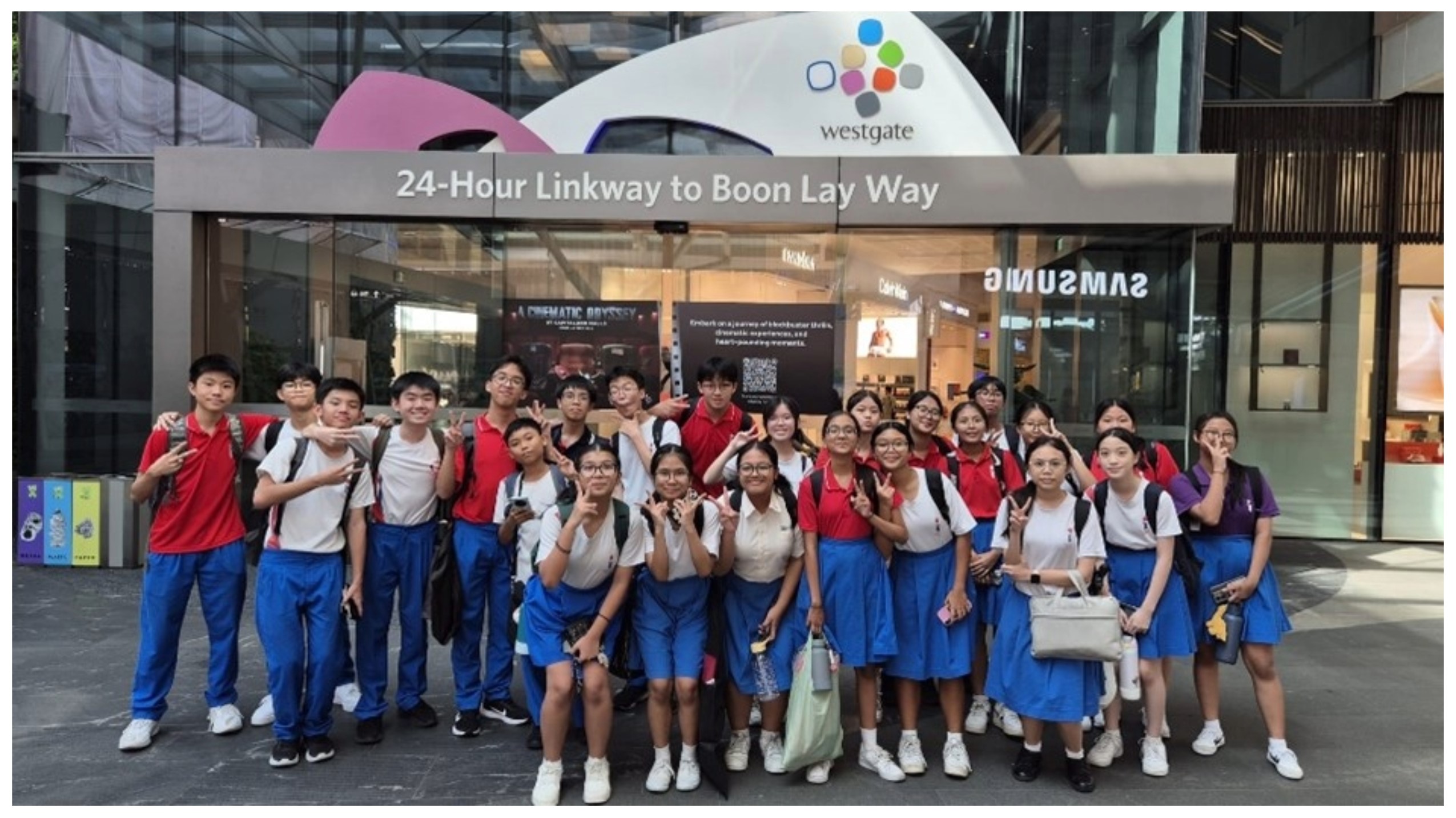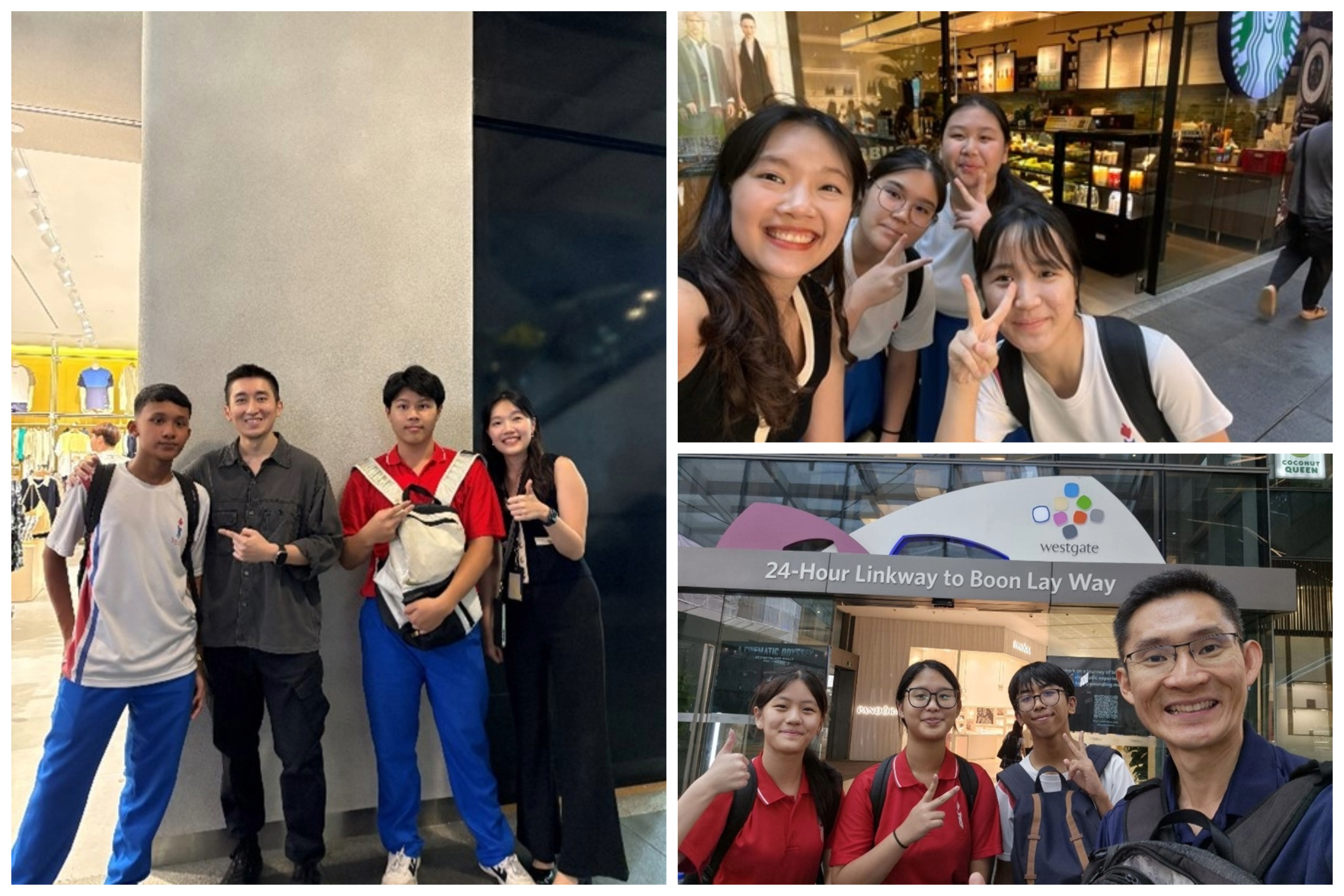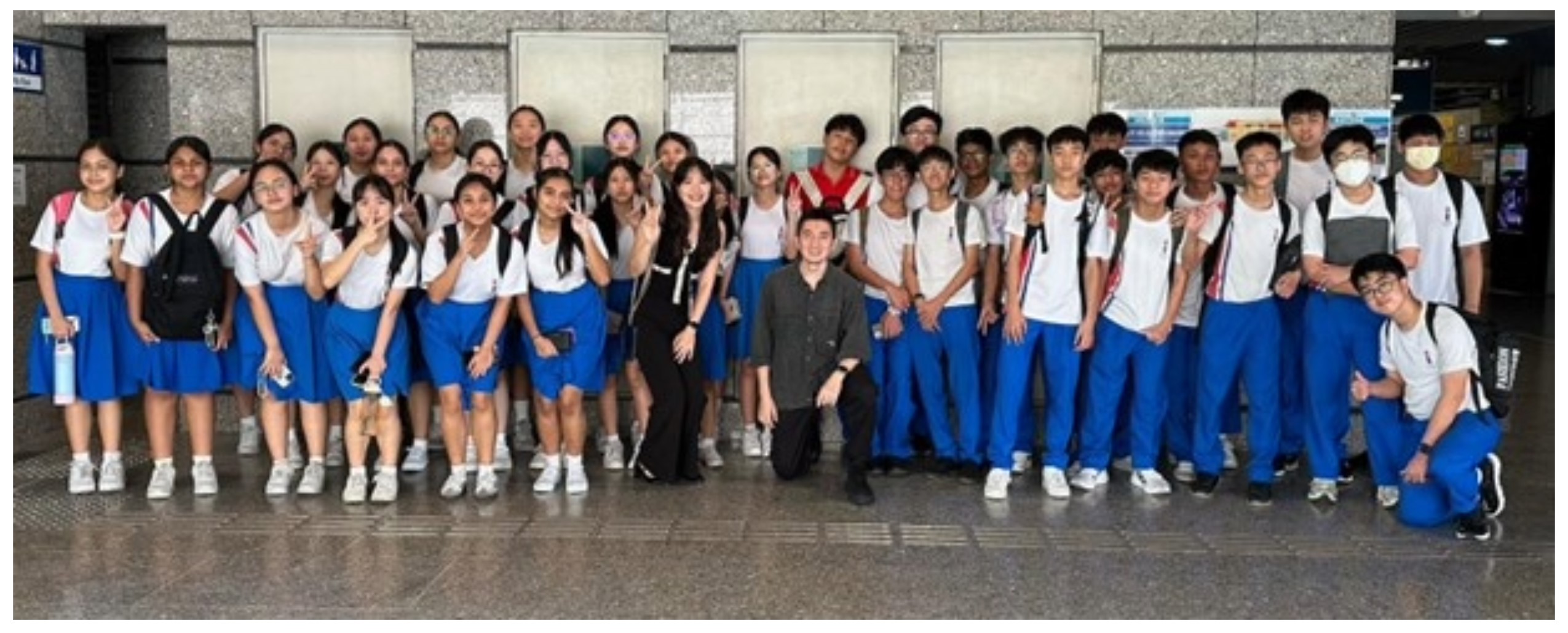Sec 3 POA Learning Journey to Jem & Westgate
Authentic Learning in Action: POA Students Explore Business Concepts at JEM and Westgate

As part of our commitment to authentic, hands-on learning, the Secondary Three Principles of Accounts (POA) students recently participated in an insightful learning journey to JEM and Westgate malls. This experiential outing provided students with the opportunity to explore how accounting principles are applied in real-world business settings.
During the visit, students were grouped and guided through an interactive Padlet activity that featured thought-provoking questions designed to reinforce and extend classroom knowledge. As they explored the malls, they examined both trading and service-based businesses, linking their observations to core POA concepts.
At retail outlets such as Cotton On and IKEA, students learned how businesses source goods from suppliers and resell them for profit. They observed how inventory is managed, and how pricing strategies—including the use of discounts—play a crucial role in increasing revenue.
Students also visited service-oriented businesses like hair salons and orthopaedic clinics, where they saw first-hand how these enterprises operate differently from trading businesses. They noted that service businesses provide intangible products and often invest in long-term, non-current assets such as mirrors, benches, and equipment—resources that support daily operations but are not for sale.

In a meaningful collaboration with the Mathematics Department, this year's learning journey also introduced students to the concept of compound interest. By integrating mathematical calculations into their business observations, students saw how financial literacy and numeracy intersect in real-world scenarios.
This enriching learning journey provided students with a deeper understanding of key business concepts and distinctions, such as the differences between trading and service businesses, inventory management, and the types of assets businesses use. More importantly, it allowed them to see how the subjects they study have practical, real-life applications—laying a solid foundation for their future studies and potential careers in accounting and finance.


